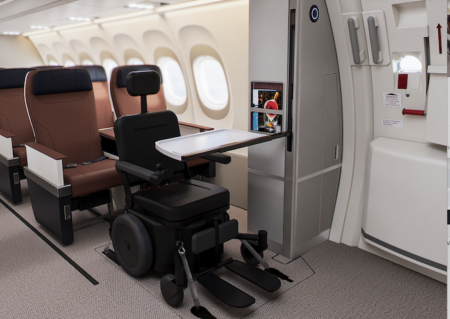Panasonic Avionics has announced a major expansion of its global connectivity network with the addition of new and expanded GEO (geostationary) Ku-band satellite capacity that delivers higher-speed in-flight internet connections. The figures are impressive, including a claimed 50% global capacity increase to ensure reliable and robust high-speed internet services.
Panasonic is adding new HTS (High Throughput Satellites) and XTS (Extreme Throughput Satellites) to its connectivity network in order to broaden and enhance coverage over North, Central and South America, the North and South Atlantic Ocean, Europe, the Middle East, Arabian Sea, Africa, and the Indian Ocean.
Panasonic Avionics is also expanding its current capabilities by introducing additional HTS capacity over China and Japan, building on existing connectivity investments in this region.
As well as that 50% global capacity increase, the expansion also enables speeds of up to 75Mbps per aircraft through HTS, and up to 200Mbps through XTS satellites.
Panasonic has a phased deployment plan is in place for the expansion, with completion expected by the end of 2023. The company says the enhancements will instantly and automatically benefit current and future customers, and will not require any changes to hardware or software.
John Wade, VP of Panasonic Avionics’ in-flight connectivity business unit, said of the news: “For the past few years, we have seen exponential growth in the adoption of in-flight connectivity. Passengers want faster internet speeds for traditional services like email, web browsing, social media and messaging, and they are increasingly looking to stream content, play games inflight, and use collaborative cloud-based applications. This major expansion of our global connectivity network will ensure that Panasonic Avionics consistently exceeds the growing demand for these kinds of enhanced in-flight experiences.”
Panasonic’s strategy for satellite capacity is to have a multi-layered, multi-orbit connectivity network, enabling the company to leverage a wide range of different, industry-leading satellites, rather than the higher-risk approach of relying solely on proprietary satellite technology. This enables Panasonic Avionics to add new capacity quickly and easily, when and where it is needed.
Panasonic Avionics’ is also preparing to launch multi-orbit connectivity services incorporating an electrically steered antenna (ESA) capable of accessing a combination of GEO and LEO (low earth orbit) satellites.





